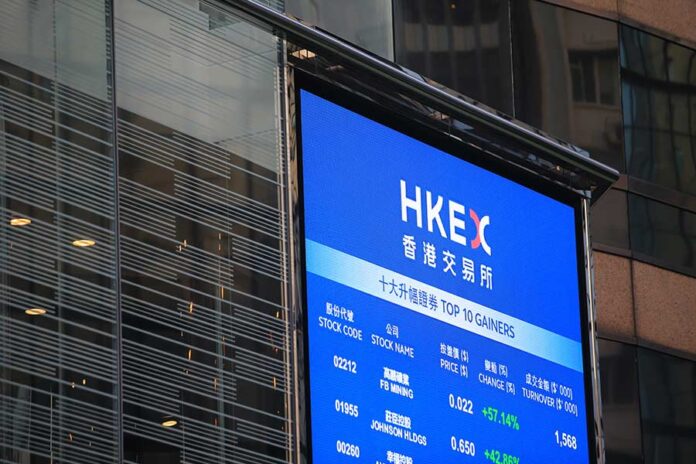The HKEX has launched a consultation on lowering the bar for companies going public from five “specialist technology industries” to generate business for the Hong Kong bourse from the rapidly evolving tech sector.
The consultation period ends on 18 December 2022, while the new chapter 18C in the listing regime is expected to be introduced in the first half of next year.

Bonnie Chan, head of listings at the HKEX, said the proposed amendment was not only in response to tech companies’ financing demands and bullish anticipation from the market, but aimed to increase the competitiveness of the Hong Kong bourse.
This year, the HKEX saw a serious revenue slump with only HKD19.7 billion raised in the first half of 2022 in the Asian financial hub, compared with HKD214.3 billion in the same period last year. The Hong Kong government expects to reverse this trend when it introduces the new chapter 18C listing rules.
Chan believed that the new rules would be flexible to accommodate developments and changes in the tech industry, and the scope of chapter 18C could be expanded as other innovations emerge in the market.
Under the proposed relaxed rules in chapter 18C, the five specialist technology industries comprise next-generation information technology, advanced hardware, advanced materials, new energy and environmental protection, and new food and agricultural technologies.
Market capitalisation is the first hurdle that tech companies in such areas must overcome to start the IPO journey. A commercialised applicant needs a minimum valuation of HKD8 billion (USD1 billion), with at least HKD250 million in revenue for the most recent audited financial year at the time of its IPO, in contrast to unprofitable applicants that require HKD15 billion in market value.

“The valuation is relatively high in chapter 18C, compared to the highest valuation on the Star Market [of the SSE, which] is only RMB4 billion (USD552 million),” said Wang Feng, a partner at Jingtian & Gongcheng.
“The liquidity and valuation of the Star Market are higher than that of the Hong Kong capital markets, which is the most critical factor in investors’ and companies’ choices.”
The new chapter is similar to the Star Market in terms of industry positioning, but the latter has more stringent requirements to deem a company as innovative.
The Star Market asks a tech company to spend 5% of revenue on research and development (R&D), or a cumulative investment of more than RMB60 million in three years; to allocate 10% of total employees to R&D; to have more than five patents; have revenue growth rate of at least 20%, or more than RMB300 million in revenue in the most recent year.
Wang believed that the scale and innovation of startups did not go hand in hand. If they could not meet the requirements for both on the Star Market, going public in Hong Kong via chapter 18C would be a better option.
“Actually, patents for inventions are relatively difficult to obtain in China. Besides, a certain percentage of R&D investment in revenue leads to a loss and gain between company scale and innovation,” Wang said.

He suggested that if an industry was included in the latest negative lists on the Star Market, a document restricting industries to private investment, it would be better for companies to consider Hong Kong IPOs through the new rules, especially those with high valuations and operating in innovative models.
In terms of IPOs, the Star Market requires companies to offer 25% of new shares for IPOs, which can be reduced to 10% if the total share capital exceeds RMB400 million. Chapter 18C, on the other hand, will only require independent institutional investors to hold half of the total shares with HKD600 million worth of stock on free float.
Wang said that if Hong Kong had a thin market, some specialist tech companies could offer their issued shares to complete the listing procedure.
Partner Christopher Yip of Linklaters said: “It would be important for such companies to adequately showcase their products and services, as well as the path to commercialisation for pre-commercial companies, without overstating their prospects and capabilities.”
To understand the potential investment risks from the proposed relaxed rules under 18C, Linklaters’ counsel Donnelly Chan referred to chapter 18A of the Listing Rules for pre-profitable biotech companies.
He said the criteria applied to companies that did not meet the financial requirements under 18A could be used as a reference for 18C as it will be a listing channel for pre-profitable tech firms.
Hong Kong became a hub for biotech firms to raise capital after a significant reform in 2018 by adding chapter 18A to the Listing Rules. This allowed pre-profitable biotech companies to be listed on the HKEX, which led to it ranking second to the US as the most popular biotech-IPO centre, according to a city official.






















